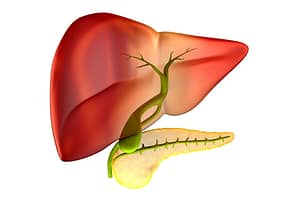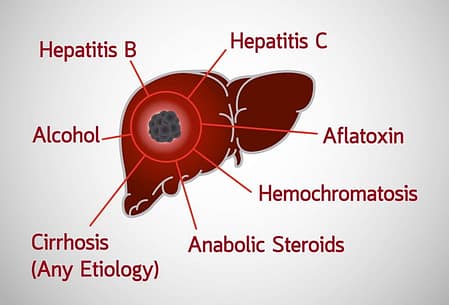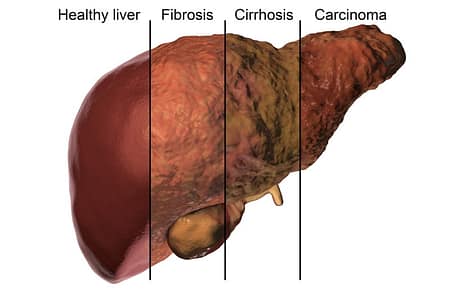
What is Castleman’s Disease?
Castleman’s disease is a rare disorder of lymph nodes and surrounding tissues characterized by an overgrowth of cells of the lymph nodes. Even though it is not a cancer, but it appears like a cancer of lymph organs (lymphoma).
Castleman’s disease is named after Dr. Benjamin Castleman who described it, in 1950s. An estimate suggests that approximately 4500 to 7,700 new cases of Castleman’s syndrome are observed per year in the United States.
Types of Castleman disease
Depending upon how a body is affected by the disease and the prevalent symptoms, Castleman’s disease is divided into two subtypes:
Localized Castleman’s disease
Another name for localized Castleman’s disease is unicentric Castleman’s disease. This condition is more commonly found compared to the other one and affects only a single group of lymph nodes. Localized Castleman’s disease commonly affects the chest or abdomen or belly.
Multicentric Castleman’s disease
Multicentric Castleman’s disease (MCD) affects multiple regions of enlarged lymph nodes. These lymph nodes are more commonly located in areas such as the neck, collarbone, underarm, and groin areas. It is a widespread condition and is known to weaken the body’s immune system which makes it hard to fight infections. Some viral infections are also associated with this condition.
Other uncommon types of Castleman’s disease are hyaline vascular type, plasma cell type, mixed, plasmablastic, etc.
Signs and symptoms of Castleman’s disease
People suffering from localized Castleman’s disease experience symptoms such as:
- enlargement of nodes in the chest (which may create a pressure on the windpipe) is a common sign of Castleman’s disease
- fever
- unintended or frequent weight loss
- fatigue and nausea
- night sweats
- skin rash
- hemolytic anemia or low level of circulating red blood cells
- enlargement of spleen or liver
- feeling of fullness in the chest
Similar symptoms are observed in multicentric Castleman’s disease. Symptoms of multicentric CD are more commonly observed in men than in women. Multicentric CD causes the liver, spleen, or other organs to enlarge which can be felt as masses under either side of the rib cage. Multicentric Castleman’s disease sometimes causes pain in the abdomen.
Sometimes, amyloidosis, or anemia is also associated with Castleman’s disease. These symptoms might also be related to any other disease, therefore a proper diagnosis is necessary for detecting the Castleman’s disease.
Diagnosis of Castleman’s Syndrome
Castleman’s Disease is a rare condition and its symptoms are similar to several autoimmune diseases, lymphomas, etc. Therefore, doctors often suspect it to be something else in the beginning.
During physical examination of a patient by a doctor, the size and shape of the lymph nodes are examined and the medical history of the patient is studied. Common tests to diagnose Castleman’s Disease are:
Imaging scans
Imaging scans are recommended to confirm the diagnosis if the doctor suspects Castleman’s Disease in a physical examination. A CT scan is helpful in taking detailed images of inside the body. MRI scan uses radio waves to get pictures of lymph nodes. An ultrasound uses sound waves to get images of the organs.
Imaging tests are helpful in diagnosing enlarged lymph nodes in any part of the body. Diagnosis of the disease through image scanning can also help in understanding if a particular treatment method is effective. A chest x-ray is also initially recommended if a person is suffering from breathing difficulty.
Blood and urine tests
Blood and urine analysis helps to rule out the possibility of other related infections or diseases. Several tests involving complete blood count (CBC), Interleukin-6 (IL-6), erythrocyte sedimentation rate (ESR), C-reactive protein (CRP), kidney function, etc may be recommended by the doctor. Blood tests are recommended if inflammation is observed in the body.
Biopsy for the diagnosis of Castleman’s Disease
A small piece of an enlarged lymph node is viewed under a microscope to detect an abnormality. Fine needle biopsy is recommended in most cases. Biopsy is mainly done to differentiate Castleman’s disease from other types of lymphatic tissue disorders such as the cancer. Lab tests which are used to study biopsy samples include such as polymerase chain reaction (PCR), cytogenetics, immunohistochemistry, flow cytometry, fluorescent in situ hybridization (FISH), etc.
Treatment of Castleman’s disease
The treatment for Castleman’s disease depends on the type of disease:
Treatment of Unicentric Castleman Disease
Localized Castleman’s disease is treated by removing the diseased lymph node with the help of surgery. If the lymph nodes are too large, they are first treated with radiation therapy followed by a surgery. These lymph nodes have rare chances to relapse. More about treating Castleman’s Disease.
Treatment of Multicentric Castleman’s Disease
Multicentric Castleman disease is treated through medications and other therapies that help in controlling cell overgrowth. It is observed that long-term outlook for MCD is not as good as in case of unicentric Castleman’s disease because there is no standard therapy to treat this condition. Also, it is observed that no single treatment works the same way for each patient.






